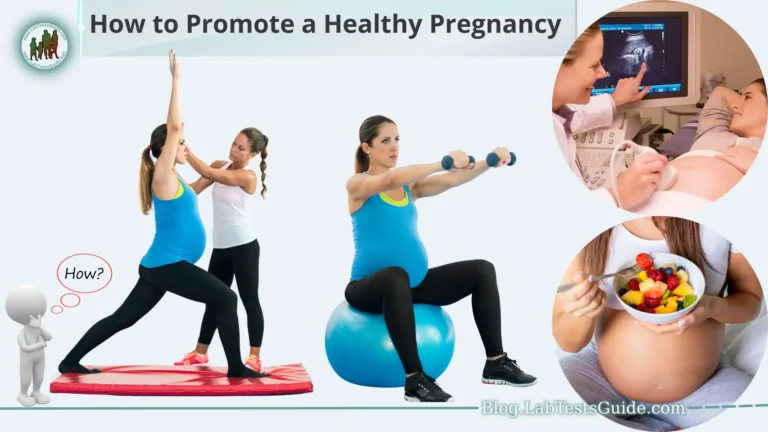Teen pregnancy and parenting can have significant impacts on the lives of young people and their families. Teenage mothers and fathers may face challenges such as limited access to education and job opportunities, financial instability, and social stigma. Additionally, teenage parents and their children are at increased risk for a range of health and social problems, including low birth weight, developmental delays, and child abuse and neglect. However, with the right support and resources, teen parents can successfully navigate these challenges and raise healthy, happy children. In this article, we will explore the risks and challenges of teen pregnancy and parenting, as well as strategies for preventing teen pregnancy and supporting teen parents.

The Risks of Teen Pregnancy:
Here are some of the potential risks associated with teen pregnancy.
Maternal health risks: Teen mothers are at increased risk of complications during pregnancy and delivery, such as preterm labor and delivery, preeclampsia, and anemia. They are also more likely to experience mental health problems, such as depression and anxiety.
Child health risks: Babies born to adolescent mothers are at increased risk of low birth weight, developmental delays, and other health problems. They may also be more likely to experience neglect or abuse.
Limited Education and Job Opportunities: Teen mothers may be more likely to drop out of school, limiting their opportunities for education and career advancement. This can make it difficult to support themselves and their children.
Financial Instability: Teen parents may struggle financially due to limited job opportunities and the costs associated with raising a child. This can lead to housing instability, food insecurity, and other challenges.
Social stigma: Teen parents may face social stigma and discrimination, which can affect their mental health and well-being.
By understanding the potential risks associated with teen pregnancy, young people can make informed decisions about their sexual health and take steps to prevent unintended pregnancy. Furthermore, with the right support and resources, teen parents can successfully overcome these challenges and raise healthy, happy children.
The Challenges of Teen Parenting:
Parenting teens can be challenging, as young parents may not have the same level of life experience and resources as older parents. Here are some of the challenges teen parents may face:
Limited Education and Job Opportunities: Teen parents may have limited opportunities for education and career advancement, which can make it difficult to provide for themselves and their children.
Financial Instability: Teen parents may struggle financially due to limited job opportunities and the costs associated with raising a child. This can lead to housing instability, food insecurity, and other challenges.
Lack of parenting experience: Teen parents may lack the parenting experience and skills of older parents, which can make it difficult to handle the challenges of raising a child.
Social isolation: Teen parents may feel socially isolated, as they may not have peers who are also parents and may feel left out of social activities.
Mental Health Issues: Teen parents may experience mental health issues, such as depression and anxiety, which can be exacerbated by stress and parenting challenges.
By understanding these challenges, young people can make informed decisions about their sexual health and take steps to prevent unintended pregnancy. In addition, support and resources for teen parents, such as education and job training programs, access to health care and child care, and family and community support, can help mitigate these challenges. and improve outcomes for young parents and their children.
Preventing Teen Pregnancy:
Preventing teen pregnancy involves a variety of strategies, including comprehensive sex education, access to contraception, and encouraging open communication with parents and health care providers. Here are some key approaches to preventing teen pregnancy:
Comprehensive Sex Education: Comprehensive sex education programs provide young people with accurate and age-appropriate information about sexual health and relationships. These programs can help young people make informed decisions about their sexual health, reduce the risk of unintended pregnancy, and promote healthy relationships.
Access to contraception: Access to contraception can help young people prevent unwanted pregnancies. This includes access to a variety of methods, including condoms, birth control pills, and long-acting reversible contraception (LARC) methods such as intrauterine devices (IUDs) and implants.
Encourage open communication: Encouraging young people to have open and honest communication with their parents and health care providers can help them make informed decisions about their sexual health. This can include talking about topics like consent, healthy relationships, and contraception.
By implementing these strategies, we can help reduce teen pregnancy rates and help young people make healthy choices for themselves and their future.
Support for Teen Parents:
Here are some ways to support teen parents.
Access to Health Care: Teen parents need access to quality health care for themselves and their children. This includes prenatal care, pediatric care, and mental health services.
Education and job training: Teen parents need access to education and job training programs to help them develop the skills and knowledge they need for themselves and their families. This may include programs that provide job skills, GED or high school completion, and vocational training.
Child Care: Teen parents need access to quality, affordable child care so they can work or attend school while caring for their children.
Family and Community Support: Teen parents need the support of their families and communities to help them overcome parenting challenges. This can include emotional support, practical assistance with childcare or household chores, and access to social media.
Peer Mentoring and Support: Teen parents can benefit from peer mentoring and support programs that provide them with guidance, counseling, and a sense of community with other young parents.
By providing these supports, we can help teen parents build a foundation for a successful future for themselves and their children.
FAQs:
Conclusion:
Teen pregnancy and parenting can present significant challenges for young people, but with the right support and resources, they can successfully overcome these challenges and build a bright future for themselves and their children. Strategies to prevent teen pregnancy include comprehensive sex education, access to birth control, and encouraging open communication with parents and health care providers. For young parents-to-be, access to health care, education and job training, affordable child care, and family and community support can help build a strong foundation for themselves and their families. By investing in the health and well-being of young people, we can help them reach their full potential and build stronger, healthier communities.






